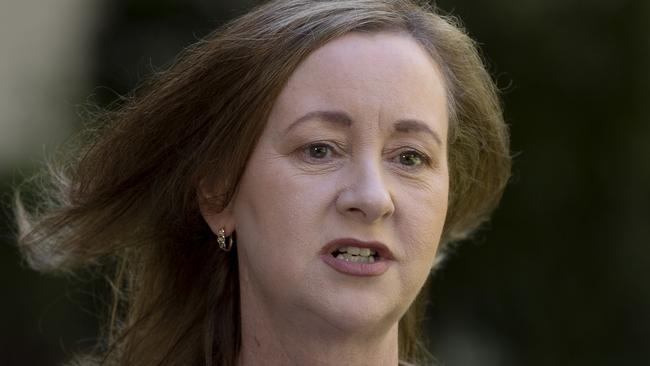Queensland DNA lab to get new complaints system
An internal complaint system will be set up inside Queensland Health after scientists at the state’s DNA lab were ignored when they tried to sound the alarm.

An internal complaint system will be set up inside Queensland Health after scientists at the state’s DNA lab were ignored when they tried to sound the alarm on disastrous testing practices.
At least seven scientists at the health department’s forensics lab raised concerns about disturbing testing practices – which have cast doubt over thousands of criminal cases – but all their approaches were dismissed by superiors.
Health Minister Yvette D’Ath acknowledged that the complaints system was broken, with a new “escalation” process expected within weeks. “There needs to be a change across health in relation to the culture and reporting,” she said. “Clearly there are still gaps in the process so there is a new escalation process being developed right now.”
The DNA inquiry, overseen by former judge Walter Sofronoff, heard evidence about long-serving scientist Amanda Reeves, who was pushed out of her job in 2016 after she had raised fears that something was going disastrously wrong with sperm testing.
After pleading with management for months to address the issue, she made a public interest disclosure, which is supposed to initiate a formal process in handling allegations of wrongdoing in the public service.
She went on stress leave and after returning to work in early 2017, Ms Reeves was “directed to work in a windowless room and given work to do that did not adequately reflect her real skills”, Mr Sofronoff found. “It was a deliberate humiliation.”
After watching Ms Reeves be “the subject of retribution” after making a public interest disclosure, other scientists in the lab felt threatened and were fearful of coming forward with concerns.
It was not until Kirsty Wright, a former employee at the lab, began to reveal testing problems in late 2021 as part of The Australian’s podcast series Shandee’s Story that others felt they could escalate complaints. In March last year, senior scientists Kylie Rika and Ingrid Moeller tried to make public interest disclosures followed by Angelina Keller in June.
All three were dismissed by the health department’s ethical standards unit, which found their concerns did not “amount to suspected corrupt conduct or a PID”.
A review of Queensland’s whistleblower laws, headed by former judge Alan Wilson, is expected to be completed in April; the Albanese government has also pledged to introduce stronger protections before the National Anti-Corruption Commission is up and running by mid-2023.
Griffith University’s AJ Brown said the federal government should aim to have common protections in all states and across public and private sectors.
“As long as there is fragmentation and inconsistencies in the rules between different jurisdictions and sectors, then people can’t understand which rules apply to them and won’t trust protections are in place,” said Professor Brown, a Transparency International Australia board member.
He said in Queensland there was no independent agency in charge of investigating whether whistleblowers suffered reprisals or of intervening to ensure departments and powerful actors within government did not sweep matters under the carpet.
The state’s Ombudsman is in charge of administering whistleblower laws but it is a secondary function of the agency.
The corruption watchdog has enforcement powers, but Professor Brown said they are “not clear or strong enough”.
Public service reformer Peter Coaldrake last year recommended a “clearing house” for complaints across government, where concerns could be triaged and referred to appropriate agencies.
There is no clear timeline on when the recommendation will be implemented. A government spokesman said: “The process is complex and intersects between multiple agencies, including law enforcement”.




To join the conversation, please log in. Don't have an account? Register
Join the conversation, you are commenting as Logout